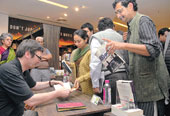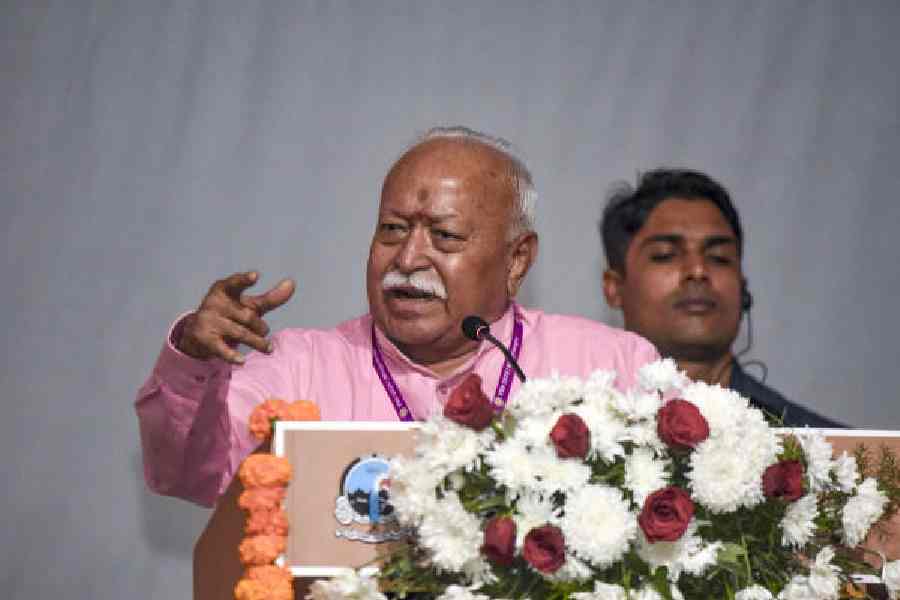 |
| Ian Rankin interacts with readers at a bookstore on Sunday evening. (Sanjoy Chattopadhyaya) |
Ian Rankin is very tall, warm, charming and chatty. Draped in black, seated casually, is the master practitioner of the novel noir. Rankin is the author of Inspector Rebus, the police detective of 17 best-selling novels. A Rebus novel is said to sell half-a-million copies in three months. Rankin and Rebus are landmarks in Edinburgh.Visitors come looking for Rebus at the Oxford Bar, where he often has one whisky too many, but may come across Rankin.
The two could not be more different, though. Rebus is presumably of a stronger build, grim, intimidating, sometimes rough and quite un-chatty. He deals with the tough guys, powerful men, druggies and dangerous types that people an Edinburgh uncovered painstakingly by Rankin’s novels — “hidden city”, Rankin calls it — with a brutality that can be astounding. Underneath that he is a good man, just and benign, who wants to do good, and that’s why readers all over the world love him.
But how do author and character get along?
“Oh, we don’t like each other. We are very different personalities,” says Rankin. He has spent more than half his lifetime with Rebus. He invented the detective from Edinburgh, where the writer too lives, when he was 24. Now Rankin is 49 and Rebus, who turned 60 in 2007, is retired, but he may come back in a novel any time, warns Rankin.
“I find him fascinating. He is always hiding something from me,” says Rankin. “But he is not as liberal as I am. He sees the world in absolute terms of good and evil. My job is to persuade him that there are grey shades in between.... Rebus is more complex than I am.”
He sees it coming. “Yes, he could be alter ego.”
Rankin did not set out to write of detective fiction. His first novel was a story that needed to be told through a policeman, but it found its place in the crime shelves of the bookstores. Rankin also has a distrust of the rules of detective fiction. The genre is about “closures”, he says, but in real life all questions aren’t answered. “I have tried to be anarchic.”
There is a sense that the criminal can be apprehended, but not the crime. “So I write why-done-its rather than who-dun-its”, which only mislead the reader. “I want to write fiction that says something about the world, about society, politics, good and evil, personal morality.”
At the South City Starmark bookstore on Sunday evening, asked of his association with The Rolling Stones, Rankin jokes: “Most of my books have names of their songs and albums, because I think most crime fiction writers are frustrated rock stars!”
Music provides additional information about a character, acting as a “shorthand for the character”, he feels. “I mention The Who almost in every book,” says Rankin, “And whenever I do, Pete Townshend e-mails me.”
On his India trip, organised by the British Council for its Lit Sutra events, he has been to Mumbai, Delhi and Chandigarh. And met Sharmila Tagore, a fan.











